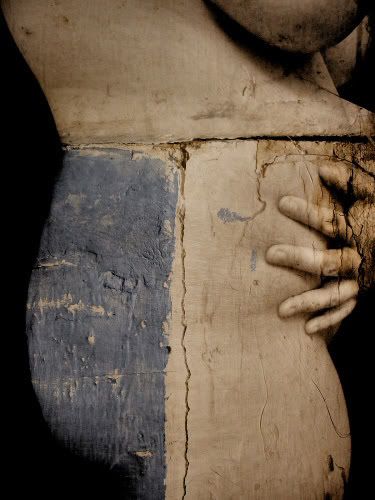Bodily Integrity? Whose choice?
 Firstly apologies for the lack of posting around here the last couple of days. I am in the middle of doing up my thesis proposal at the moment so that is kind of consuming my life at the moment.
Firstly apologies for the lack of posting around here the last couple of days. I am in the middle of doing up my thesis proposal at the moment so that is kind of consuming my life at the moment. If I am honest, it was probably the first time in 23 years that I have had to engage with the issue of abortion properly, despite my previous experiences in School. I do remember one of the most memorable arguments I had with one of my grandmothers was in 2002, around the time of the last of the Referenda on the issue. Despite the fact that I was unable to vote on the referenda, I was very much intrigued in the law and how it affected people's lives even when I was 17. I was arguing my point about pro-choice. My grandmother the opposite. Eventually my mother had to interject the conversation and tell her son to relax and go make a cup of tea for my grandmother.
That theme of invisible societal shame, that came with making a decision and going through with it AND enduring the consequences of that decision was almost tangible in that documentary. One of the quotes which struck me completly from the DVD was from:
"And yet spiritually or morally I knew it wasn’t an easy decision. It wasn’t that I was going off reveling in my decision. What happened was it was very complicated. I was in a kind of a climate in Ireland where abortion was a crime, where women were filthy criminals who went to England to have an abortion, and they should be stopped at all cost. And yet I had a huge amount of grief round making that choice. I didn’t want to have had to make that choice. I got pregnant. I had been using contraception. The contraception failed. I hadn’t been irresponsible. I was a young woman where I had my whole life before me and I dearly fervently wanted that life. I wanted to have as much control over that life as I could. And to be forced into a pregnancy against my wishes because a large group of people in the country that I was living in didn’t approve of my choices and my lifestyle, you know what I mean, it was just too much for me. I just decided: “No, his is the life I want to try and give myself a chance to have. I don’t want to be tied at home with child, much as I love children, much as I love my friends’ and family’s children, not right now, hank you very much.” You know, so, it was very liberating, and it was very important."
- L. via Transcripts, They left like ships in the Night(2006)
"where women were filthy criminals who went to England to have an abortion and they should be stopped at all cost" . This statement astounded me. Filthy Criminals, who "should be stopped at all cost". I am sorry but seriously! I know these women had her termination in the 1983 after the first Referenda on Abortion when no information was allowed to be given to women who were in this situation. Whilst information is now given out by the Irish Family Planning Agency & Positive Options campaign, we still export our "problem" to another jurisdiction i.e. the United Kingdom, because abortion is illegal in the North and South.
There is according to these documentary 40-50 women leaving the North every week to go to the UK. It also estimated that there are some 180 women leaving from the South every week to go to the UK. That is some 220 women a week north and south going to have a termination. Roughly 880 people a month. Roughly 10560 women a year. If we take just in the last 25 years(since the first referendum on the issue) that that figure has remained constant, that is 264,000 women who have been unable to defend their right to the integrity of their own bodies because "we" don't want to have abortion on the island of Ireland.
Women have a right to the integrity of their bodies and if we believe in that right, it then flows that they have the decision to terminate or not. I highly recommend that those of you who have your own opinions and hold the moral high ground on abortion to challenge yourself to answer this question, as a defender of that ground, Would you personally stop a women who has made the decision to terminate, based on her own experiences & circumstances? I know, I could not and I would not.
Labels: Abortion, Bodily Integrity, Northern ireland, Republic of Ireland, Shame, Stigma, Termination


